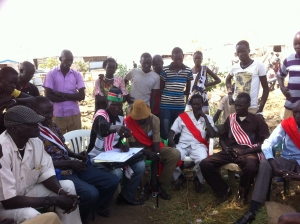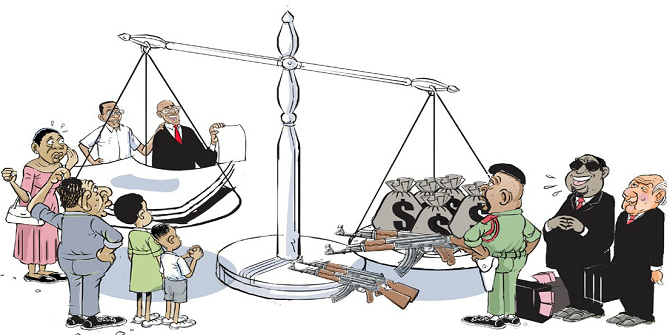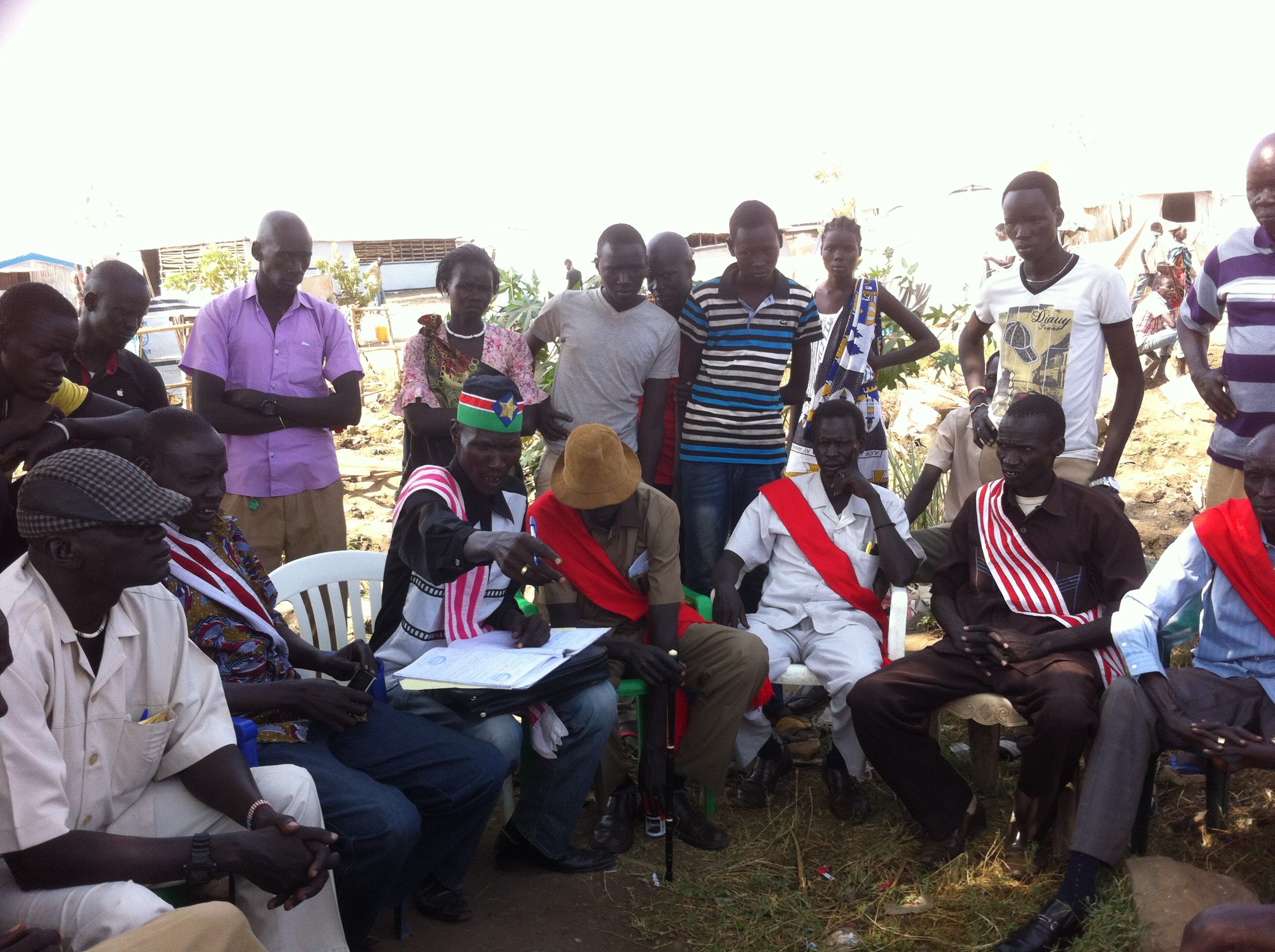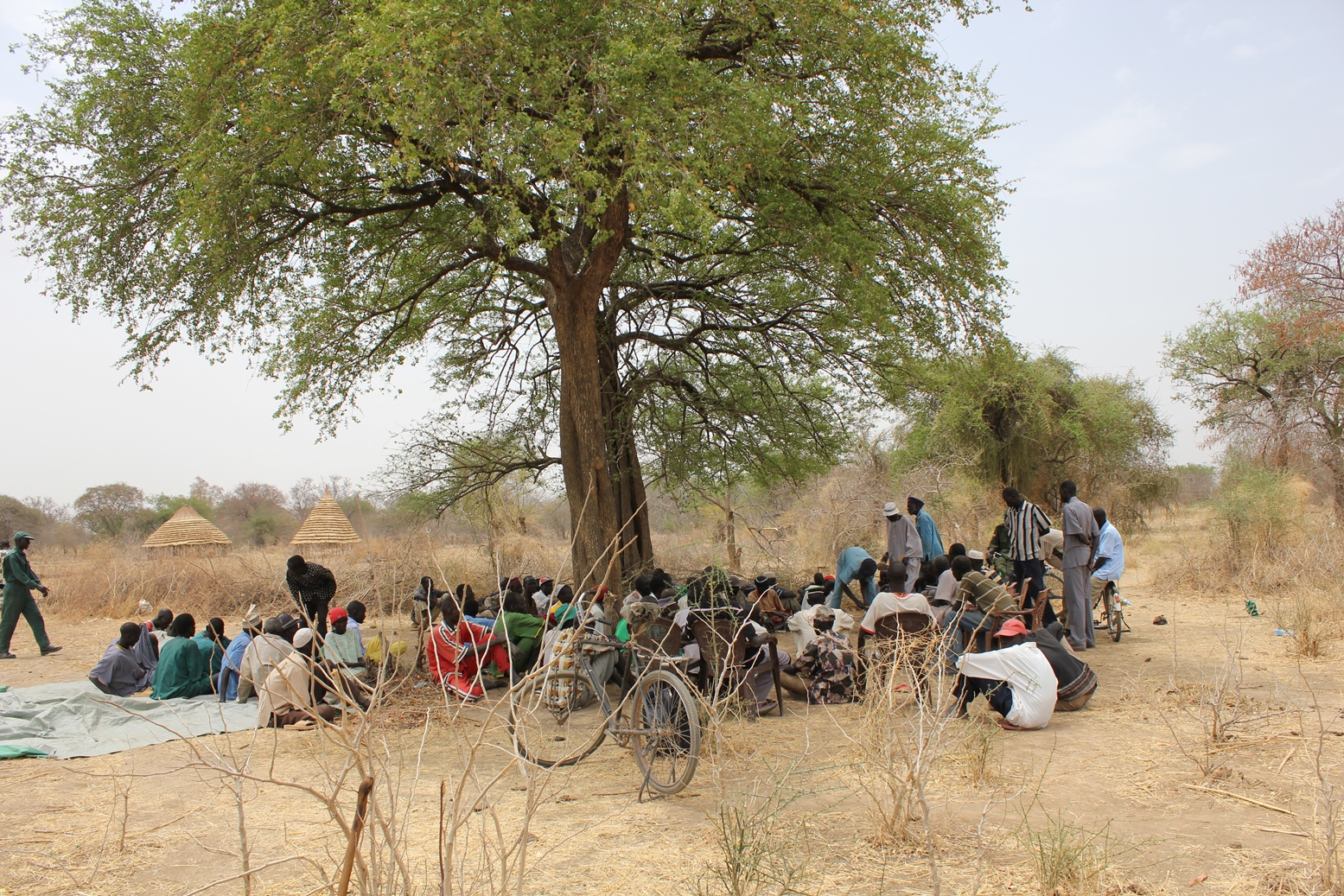 In this blog Alex de Waal and Rachel Ibreck explore the provision of justice and security within the ‘Protection of Civilians’ sites in South Sudan, drawing on extensive research in the Juba and Bentiu sites. A new JSRP paper by Rachel Ibreck and Naomi Pendle provides fuller details of this research.
In this blog Alex de Waal and Rachel Ibreck explore the provision of justice and security within the ‘Protection of Civilians’ sites in South Sudan, drawing on extensive research in the Juba and Bentiu sites. A new JSRP paper by Rachel Ibreck and Naomi Pendle provides fuller details of this research.
When civil war erupted in South Sudan in December 2013, the United Nations Mission in South Sudan (UNMISS) threw open its gates to scores of thousands of civilians fleeing for their lives. Since then, the UN has been much criticised for failing to protect people inside the ‘Protection of Civilians’ sites (PoCs), and in surrounding areas. But while the 200,000 or so people who fled to the PoCs continue to fear threats from the belligerents fighting the war, they also face crime and violence within the camps. Providing justice and security to a civilian population is not something that UNMISS was set up to do—either practically or legally.
Any workable system of civilian protection ultimately depends on the establishment of political communities, social contracts and legitimate authorities. It cannot be done by setting up top-down police services and justice systems, no matter how good the template. This is why it is so important to understand the ways in which communities act to create functioning justice and security mechanisms, even where they are directly under international protection, as they are in the unique context of South Sudan’s PoCs. Experiences in these sites suggest that realities of protection in the present – and the opportunities for strengthening it in future – partly depend upon the responses of customary actors to new circumstances and norms.
Customary courts were swiftly established by the communities in the PoC sites to address the problems of justice and security, although UNMISS and humanitarian actors neither encouraged nor recognized them directly. South Sudanese are familiar with chiefs’ courts as they have often been the most accessible and legitimate form of public authority. They have fulfilled protection functions under colonial rule, in all the variants of post-colonial governance, during wartime, and among displaced and refugee communities. They have adapted and flourished within the PoCs.
UNMISS has found itself in a curious position of coexistence with the authorities of the customary system, and in frequent reliance upon them to manage violence, criminality and potentially destabilising infractions against a customary social code. Camp residents turn to the chiefs to try to avoid communal fighting, and to the courts to resolve conflicts; there is no other effective mechanism for this task. UNMISS and humanitarian actors have promoted human rights within the sites, provided guidelines for ‘dispute resolution’ and training to a local policing mechanism that works with the courts, the Community Watch Group. Yet there is a proliferation of customary court cases, from minor theft to gender-based violence and assaults, as social, marital and familial relations are being tested under harsh social conditions. Chiefs’ courts do not simply mediate in these disputes, they punish violations of law and breaches of custom, as they have generally done.
Chiefs’ courts are associated with the pursuit of legitimate authority and accessible justice. But gender and generational inequalities are embedded in notions of customary law, licensing certain human rights violations. This presents a serious challenge and one that needs to be confronted judiciously with careful attention to variations in court decisions. Local paralegals and researchers have documented 395 court processes in the Juba and Bentiu PoCs between July 2015 and July 2016, and their substantial work is drawn upon by Rachel Ibreck and Naomi Pendle in a new JSRP paper ‘Customary Protection? Chiefs’ courts as public authority in UN PoCs in South Sudan’, examining the role and practices of the courts.
The paper finds that the chiefs and other local security actors, such as members of the Community Watch Group, or the emergency response team known as ‘N4’, play important roles in halting and preventing conflict within the sites. The courts underpin their authority and create opportunities to make such authority accountable to the community. The courts involve consistent, deliberative processes, ensuring that people’s concerns gain a full hearing. They also foster a shared Nuer identity among people divided and traumatised by war, promoting continuity, dignity and an approximation of order. But in terms of delivering protection, there is a spectrum of outcomes.
Court records demonstrate that the concerns of the courts are to punish criminality, prevent violence and promote social and moral order. But too often this leads to oppressive judgements, especially those affecting women and youth. Women are often refused a divorce even after reporting serious domestic violence; young men receive heavy penalties for relationships out of marriage; and young women are subject to the authority of their parents and brothers, seen as the ‘owners of the girl’.
Yet important precedents are also being set for rights and justice in some cases, suggesting chiefs and court panels can adapt to their context. In interaction with UNMISS and humanitarian actors, new forums, actors and practices of justice are emerging; chiefly authority, court panels and ideas about the customary are evolving. We see a readiness to place constraints on community authorities, a will to integrate people of other ethnicities, and some adjustment to the norms of this humanitarian context.
The regeneration of the courts in the sites is a response to a practical need for justice forums, but is fundamentally associated with the constitution of public authority and community among people affected by atrocity, conflict and profound uncertainty. This suggests that the work of court observation and the activities of paralegals trained by local civil society groups are crucial. They are involved in creating records of decisions that might be a source for dialogues about how to advance justice and security. While UNMISS and humanitarian actors continue to try to protect vulnerable people in South Sudan, they would do well to learn more about how these local protection initiatives function, and how they can be supported to prevent abuses. Court records provide insights into how customary law might evolve and why people turn to chiefs’ courts, even when they are under UN protection.
Photo credit: Gatwech Wal
———————————————————————————————————————————-
Note: This article gives the views of the authors, and not the position of the Justice and Security Research Programme, nor of the London School of Economics or of Palladium International Development.





